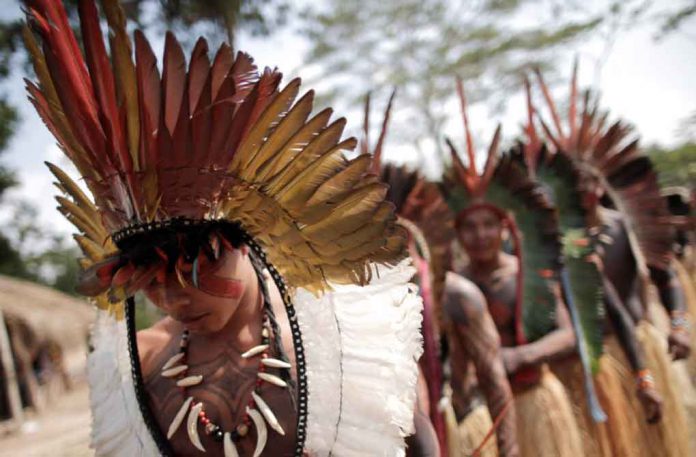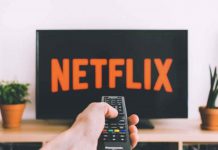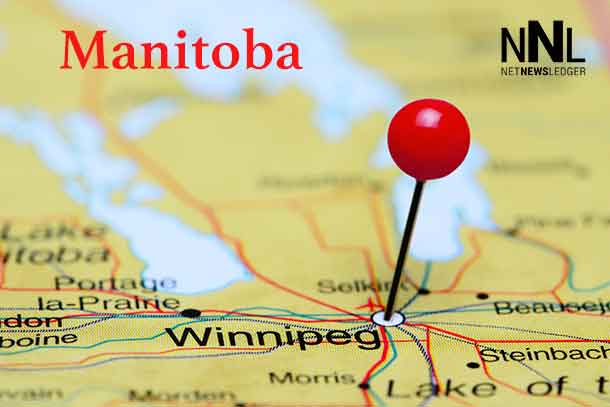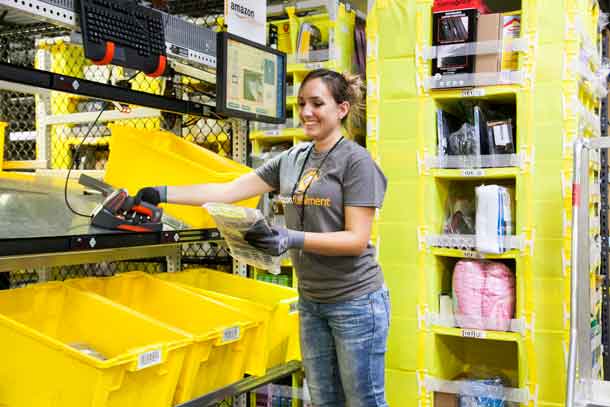
The deaths of British reporter Dom Phillips and Brazilian Indigenous expert Bruno Pereira highlight growing Amazon violence
- Killing of Dom Phillips and Bruno Pereira under probe
- Data shows murder rate rising in Brazil’s Amazon region
- Bolsonaro government criticized for fuelling criminality
By Andre Cabette Fabio
RIO DE JANEIRO – (Thomson Reuters Foundation) – The murder of Brazilian indigenous expert Bruno Pereira and British journalist Dom Phillips has cast a spotlight on rising violence in Brazil’s Amazon region, with several experts blaming President Jair Bolsonaro’s government for fuelling criminality.
The pair went missing during a research trip in the remote Javari Valley on June 5. Their remains were recovered from a grave in the jungle about 10 days later after a fisherman who confessed to killing them, Amarildo da Costa, led police there.
The region near the Peruvian and Colombian border is Brazil’s second-largest indigenous territory, and has faced a growing threat in recent years from illegal poaching, fishing, logging and gold mining, as well as from drug trafficking gangs.
Studies have shown that such environmental and drug crimes have in recent years not only contributed to record levels of deforestation in the Amazon rainforest, but also a rise in the murder rate.
As police this week prepare to carry out a reconstruction of the killing of Pereira and Phillips, newly published data found that Brazil’s northern region, covered mostly by the Amazon, was the only area of the country where murder increased last year.
An annual report by the non-profit Brazilian Public Security Forum said the northern region’s homicide rate rose by 62% in 2021, whereas the overall rate for the nation fell by 9.3%.
There were 6,291 murders in the region last year, up from 5,758 in 2020. Of the the 30 most dangerous cities in Brazil, 13 are in the Amazon.
If Brazil’s North were a country, its murder rate of 33 per 100,000 people would make it the 11th most dangerous in the world, ahead of nations including Mexico, Colombia and Nigeria, according to data from Statista.
Separate statistics from the Pastoral Land Commission – an advocacy group linked to the Catholic Church – show that the Amazon accounted for 77% of 403 deaths resulting from rural land conflicts over control of territory nationwide between 2012 and 2021.
Indigenous leaders, activists, researchers and a public prosecutor told the Thomson Reuters Foundation that they believe the far-right Bolsonaro administration’s policy decisions have contributed to the rise in killings and crime.
Since Bolsonaro took power in 2019, he has encouraged the commercial exploitation of protected indigenous lands in the Amazon and sought to reduce environmental protections.
Land invaders “feel strengthened with a discourse favorable to the legalization of garimpo (artisanal and small-scale mining) in indigenous territories,” said Ivo Macuxi, a member of the Macuxi people and a lawyer for the Indigenous Counsel of Roraima (CIR).
“This has led to a greater number of invasions of indigenous territories” and environmental crimes, he said, adding that CIR coordinators had received death threats from miners.
The Chief of Staff Office, the Ministry of Justice and Public Security, the Ministry of the Environment, the Federal Police and Funai, the government body responsible for protecting native peoples, did not respond to requests for comment.
INCENTIVE FOR ILLEGALITY
In the 1990s, Brazil’s Amazon region was relatively safe in comparison with the rest of the country despite then-record levels of deforestation.
Yet from 1999 onwards, Amazonian states saw the murder rate rise rapidly, and since 2007, they have continuously outranked the rest of the country on that metric, according to research published last year by the Amazon 2030 research project.
The study found that the murder rate was higher in parts of the Amazon where researchers had identified a greater threat of illegal logging, mining, and land seizures taking place.
“The logic is simple: in illegal markets you have misunderstandings and disputes which are not solved through state institutions”, said Rodrigo Soares of the Institute of Education and Research (Insper).
“We know (under Bolsonaro) there has been a certain level of dismantling of the monitoring of the Amazon, which functions as incentive for illegal activity,” added Soares, who oversaw the research.
Violence against indigenous Brazilians and illegal incursions on their land roughly doubled in the first two years of Bolsonaro’s government from the two years prior, according to The Missionary Council for Indigenous Peoples (CIMI).
It is being fuelled by various factors from the record prices of commodities such as gold – one of the most illegally mined minerals in the Amazon – as well as tin and beef to the ever-expanding drug trade, according to experts and studies.
“Facções” – criminal networks organized inside and outside the Brazilian prison system – are increasing their presence in the Amazon, seeking to control cocaine transportation routes, according to the Brazilian Public Security Forum.
Drug trafficking as well as environmental crimes have contributed to higher murder rates in the Amazon, it found.
GOVERNMENT INACTION
This month, Indigenistas Associados (INA) – which represents agents for Funai, the government body responsible for protecting native peoples – criticized Bolsonaro’s government over their treatment and said it had made the agency “anti-indigenous”.
A dossier co-released by INA said that career Funai agents – the late Pereira among them – have been sidelined since Bolsonaro’s election and replaced with people with less experience of indigenous issues.
Funai has said that the agency “acts in strict obedience with the principles of legality, impartiality and morality”.
Pereira was removed from his role in 2019 shortly after dismantling illegal mining operations in the Yanomami indigenous reserve.
And in 2020, two federal police officers were fired from senior roles after arresting illegal loggers during a probe into then Environment Minister Ricardo Salles, who quit last June amid a criminal investigation into whether he obstructed police work.
Researchers and Brazilian media have documented more than a dozen such examples of state employees being removed from their jobs.
Public prosecutor Alisson Marugal – who focuses on the rights of minorities – said that the government has only executed major law enforcement operations in the Yanomami reserve after justice rulings prompted it to do so.
“There is a clear choice by the state not to fight this type of criminality”, he said.
The prosecutor also said he had observed higher levels of violence in the Amazon, especially due to illegal mining spreading to more indigenous areas for the first time.
Marugal recalled a visit to the Yanomami reserve in May, where illegal miners offered 50 shotguns to one indigenous community, prompting another group to ask for 80 more weapons.
“It was a context in which each community was arming to defend itself,” he said.
Indigenous youth leader Txai Surui, of the Paiter Surui people, understands the threat of violence and the reality of murder in the Amazon all too well.
“My people and my family have always received threats”, said the 24-year-old, who gave a speech at the COP26 United Nations climate change conference in Scotland last year.
“In April 2020, my friend Ari Uru-Eu-Wau-Wau, a defender of the forest and part of the monitoring group for the Uru-Eu-Wau-Wau (people), was murdered,” she added.
While police expand their investigation into the murders of Pereira and Phillips, it is now more than two years since Ari Uru-Eu-Wau-Wau was found dead in the Amazonian state of Rondonia – killed by blows to the head. The case remains unsolved.
(Reporting by Andre Cabette Fabio; editing by Kieran Guilbert and Laurie Goering. (Please credit the Thomson Reuters Foundation






